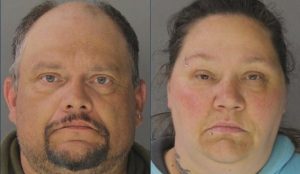At 23, I decided I wanted to work with offenders. I’d always been fascinated by people who did bad things, maybe because I was a little bad myself. I’m the second youngest in a gigantic family, so there’s a touch of catholic guilt talking, but no, I was naughty as a child and young adult. I rejected boredom. I confronted bullies, I broke rules.
I never did anything really bad, but I believed I might be capable, and was interested in people who did. I wondered: ‘Why did they do that?’ and ‘How can we make sure they don’t do it again?’
I was working as an administrative officer in a hostel in London at 23. I loved it. The staff were friendly, and so were the 50 ex-offenders who lived there. I interviewed some of them, published a small booklet with the stories they told me. One was set in Manchester during the second world war. He was out at the shops when a bomb hit his workplace. The story was called: ‘How cigarettes saved my life.” There were stories everywhere in that hostel; every one of the men had lived difficult, dramatic lives.
The hostel in London was a happy place. It was well managed. It was caring. And it wasn’t a halfway house. It was a permanent home to the residents.
When I fell in love with a Scots-Italian, I applied for a job as ‘project worker’ in a hostel in Edinburgh, and arrived in the gothic, fairy-tale city on a glorious summer’s day. The interview – and the job – was in a beautiful Georgian townhouse right in the middle of the New Town. I didn’t notice much about the inside of the building. I was too excited about my new life.
Somehow, the interview went well. Afterwards, I skipped all the way to Princes Street and up The Mound to the Royal Mile.
In the afternoon sun, I lay on the grass in The Meadows.
By evening, I was writing bad poems on cobble-stoned streets in old town cafes.
I had found myself. Social work was my job. Edinburgh was my city. Writing was my hobby.
Three months later, I found myself sitting at a rickety desk in a dingy office, trying to finish the short story I started years earlier. It was dark. It was only 4pm. The inside of the beautiful Georgian townhouse stank of urine, cigarette smoke, sweat, and sperm. I was completely alone, thankfully. The residents were all out getting drunk. They would return, sooner or later, and all hell would break loose.
Edinburgh was not the same place that it was in September.
And I had no idea how to write a short story.
Suddenly, my colleague, let’s call him Jim, walked in with his Christmas shopping and his smile.
“Don’t cry”, he said.
I didn’t realize I was.
“Don’t let them get to you,” said Jim. “They just need us to help them untie their knots.”
He was talking about the five residents living in the hostel. All of them had prolific and serious criminal histories. They were considered ‘very high risk’. They had stringent conditions on their parole licenses, like a condition to live in this halfway house for one year, with idiots like me—as well as qualified social workers—watching your every move. Since starting the job, I’d been threatened and manipulated by sex offenders, undermined by the boss, and followed home by a man with a baseball bat. I’d had taken to chain smoking and trembling. This was nothing like the hostel in London. This was more like a prison, and I was the only guard.
This terrifying job was the inspiration for my latest book, Halfway House, in which the naive and selfish Lou O’Dowd finds herself living with the five worst men in Scotland.
After qualifying as a social worker (specialising in criminal justice), I got a job in the Gorbals Social Work office. The Gorbals was famous at the time – for poverty, deprivation, addiction problems and gangland crime. My family and friends in Australia were so worried for me. They’d read a book about life in The Gorbals during the depression (‘No Mean City’) and they hadn’t heard anything good about the place since. “Where? The Gorbals. No. Not The Gorbals. (When an area in prefaced by ‘The’ in Glasgow, it means you probably shouldn’t go there).
Right enough, The Gorbals was ravaged by poverty. Its 70s high-rise buildings were in disrepair, and—to my horror during home visits to the 14th floor—swayed in the wind. But the people were the friendliest I’d ever met in my life. I ended up playing in the Gorbals netball team. (We smoked at half time. We also won.)
I left the Gorbals office when ‘something very exciting happened’ with my writing. I’d written a screenplay for fun and it turned out to be okay. I was going to be a screenwriter. I had a glorious going away party. I had a night out that ended with a fabulous amount of remorse. I had a big cake. My boss gave an amazing speech.
Obviously, nothing happened with the screenplay. That terrible hope, gets me every time.
I returned to the Gorbals office two years later; embarrassed, terrified, and excited. I was glad to be back. And my colleagues were kind. In Glasgow, people much prefer a failure.
My next job was in HMP Barlinnie, or ‘the big hoose’ as it’s called here. It’s a Victorian prison with five intimidating stone Halls, all in a row. It’s being replaced right now and will not be missed. The stairs were worn and the two-storey building stank and the cells were tiny. Every day, I felt for the prisoners. It was dehumanizing in jail.
After three years, something very exciting happened again. I had written a book. I was going to be a novelist. The Barlinnie Social Work team gave me a small going away party and a small cake. My boss didn’t give a speech.
I managed to be a full-time writer for four years before I needed to get back to it again. (Not only money reasons, but also sanity. I like being in a team). I returned to a frantic office in Paisley. My job involved supervising probation and parole cases, writing sentencing and background reports for the court, visiting prisons, doing home visits, undertaking risk assessments with the police.
I really got to know the people I was supervising; their families too. And I loved being aware of the types of crimes that were coming into the system, and the harmful behaviours that were not yet illegal. While I was in Paisley, I wrote Viral (about revenge pornography) and The Cry (about coercive control) – and these crimes have since been made illegal in the UK.
I would have stayed at Paisley, if something very exciting hadn’t happened with my writing. My novel, The Cry, was being adapted into a BBC/Netflix drama. And so I resigned. I don’t remember getting a cake.
That was six years ago, which means that this has been my longest period as a full-time writer to date.
And I am getting the itch again. I want to listen to people’s stories. I want to try and support them. I’m sick of thinking about myself. I’m craving my dark and hilarious colleagues.
I have, in fact, been thinking about applying for a job as group worker. It’s with men who’ve been convicted of intimate partner violence. It is so tempting. It’s what I’m interested in. I’d say two-thirds of my books are about domestic violence and toxic relationships.
The job specification is on my desk.
The application is open on my laptop
I’ve confirmed with my old boss that she’ll give me a reference.
But wouldn’t you know it? My screenwriting agent just emailed… Something very exciting has happened.
***













More Stories
6 Crime and Horror Books Featuring Unusual Narrators
The Ending Of ‘Presumed Innocent’ Gives Carolyn Polhemus A New Killer
Book Release: Night Work by Pete Duval